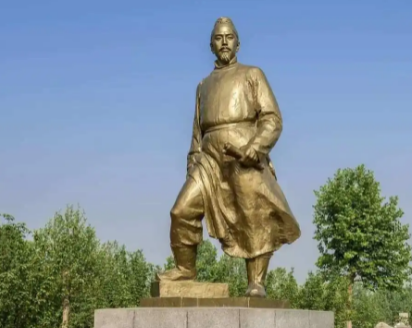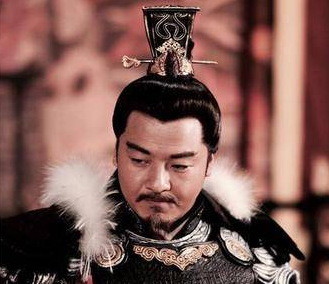The Chenqiao Coup was a famous military coup in Chinese history, which changed the historical process of the Northern Song Dynasty. However, this coup was not known as a "rebellion", and the reasons behind this deserve further exploration. This article will analyze why this coup was not called a "rebellion" from its course, background, and impact.

First, the Course of the Chenqiao Coup: The Chenqiao Coup occurred in the year 960 AD, located in Kaifeng City, Henan Province, today. At that time, Chai Rong, the emperor of the Houzhou Dynasty, was seriously ill, and the country's politics were unstable. Zhao Kuangyin, who was then the commander of the Houzhou Imperial Guard, took the opportunity to stage a coup, overthrowing the Houzhou regime and establishing the Song Dynasty. The key to this coup was that Zhao Kuangyin's army gathered at Chenqiao Post, hence the name "Chenqiao Coup".
Second, the Background of the Chenqiao Coup: Political unrest in the Houzhou Dynasty: During Chai Rong's reign, the country's politics were unstable, and people's livelihood was declining. Chai Rong attempted to carry out reforms but failed for various reasons. This gradually led to the loss of popular support for the Houzhou regime, creating conditions for the Chenqiao Coup. Military status of Zhao Kuangyin: Zhao Kuangyin was the commander of the Houzhou Imperial Guard, controlling powerful military forces. He enjoyed high prestige in the army, thus had sufficient strength to stage a coup.
Third, the Impact of the Chenqiao Coup: The Chenqiao Coup changed the historical process of the Northern Song Dynasty, making the Song Dynasty one of the most prosperous dynasties in Chinese history. After establishing the Song Dynasty, Zhao Kuangyin carried out a series of political, economic, and cultural reforms, gradually leading the country to prosperity.
Fourth, Why the Chenqiao Coup is Not Called a "Rebellion": Legitimacy: Although the Chenqiao Coup was a political coup, it occurred against the backdrop of the seriously ill emperor and political unrest in the Houzhou Dynasty. Zhao Kuangyin's goal in staging the coup was to overthrow the corrupt Houzhou regime and establish a new dynasty to achieve national prosperity and strength. Therefore, to some extent, the Chenqiao Coup had a certain legitimacy. Public support: At the time of the Chenqiao Coup, the Houzhou regime had already lost popular support. Zhao Kuangyin's coup received widespread popular support, making it more of a reflection of public opinion rather than a simple "rebellion". Historical evaluation: Later generations generally evaluated the Chenqiao Coup favorably, viewing it as a successful coup. After establishing the Song Dynasty, Zhao Kuangyin implemented a series of reforms, leading the country to prosperity. Therefore, the Chenqiao Coup was seen as a positive event rather than a negative "rebellion".
In conclusion, the Chenqiao Coup was an atypical "rebellion" that occurred against a specific historical backdrop, possessing a certain legitimacy and popular support. Zhao Kuangyin's goal in staging the coup was to overthrow the corrupt Houzhou regime and establish a new dynasty to achieve national prosperity and strength. Therefore, despite being a political coup, the Chenqiao Coup was not known as a "rebellion".
Disclaimer: The above content is sourced from the internet and the copyright belongs to the original author. If there is any infringement of your original copyright, please inform us and we will delete the relevant content as soon as possible.






























